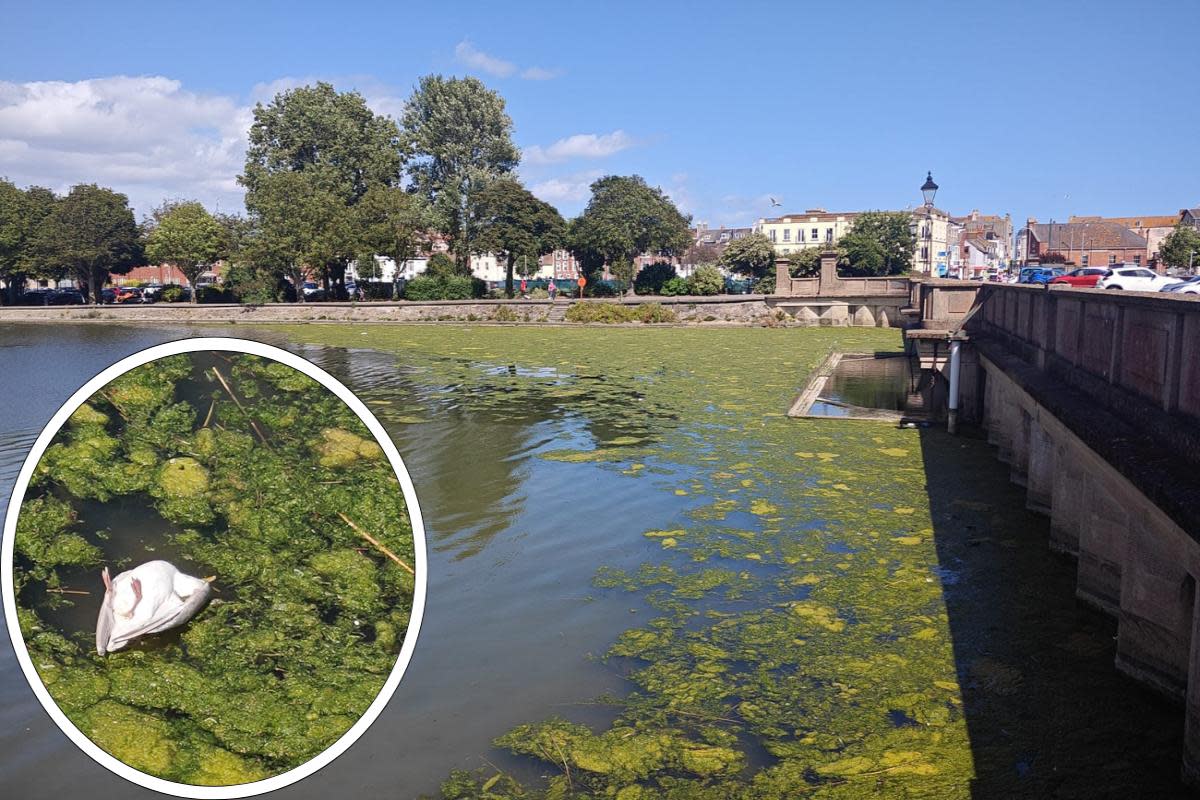Seagulls found dead at algae-hit lake

A SHOCKED resident has told of discovering half a dozen dead seagulls on a algae-hit lake in Weymouth - prompting authorities to investigate.
The gulls were found in the Swannery area of Radipole Lake where a green film is covering the water near Westham Bridge.
During hot weather algae blooms form on top of the water - which can be toxic and harmful to animals.
In previous summers the Environment Agency has discovered blue-green algae at the lake.
READ: Resident's concern as algae and litter are found in Radipole Lake
Local resident Pauline Crabb saw the gulls and has been left 'angry' and 'upset' by the incident which has now prompted Dorset Council to investigate.
Dead seagull on the algae bloom on Radipole Lake in Weymouth (Image: Cristiano Magaglio)
She said: "Why have the council allowed it to get so bad? I am so angry and so upset.
"All the wildlife is dying. Seagulls are a protected species, whether you like them or not."
READ: Seagulls found with horrific injuries from attacks
While the cause of death of the seagulls is not yet known, Dorset Council is sending a team to 'investigate' the area and is planning on setting up an annual inspection and treatment regime.
A spokesperson said: “Dorset Council is aware of the dead seagulls by Westham Bridge.
"While we do not know if this is due to toxic algae in the water, we will deploy someone to investigate the area and take appropriate action if needed.
"We are also looking to set up an annual inspection and treatment regime here to prevent further issues."
Two more seagulls can be seen floating on the water on their backs on Radipole Lake (Image: Cristiano Magaglio)
Also known as cyanobacteria, it is a group of bacteria that can contain dangerous toxins which can be harmful and potentially fatal to pets, livestock and birds if ingested even in small quantities.
Whilst the council investigates the area it has warned members of the public to keep pets and children away from the water.
The Dorset Council spokesperson added: “You can’t tell if an algae bloom is toxic just by looking at it, so it’s safest to assume it is.
"Keep pets and children away from the water and avoid skin contact with the water or algae."
The RSPB, which looks after the nature reserve at Radipole Lake, declined to comment.

 Yahoo News
Yahoo News 
